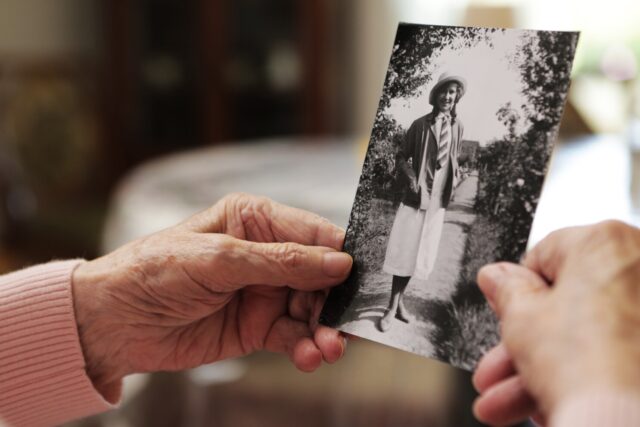
When your loved one is diagnosed with dementia, it can devastate the senior and their family. However, you can navigate many options that ensure your loved one is doing great and their health is cared for.
Some options include taking them to a nursing home, choosing home health care in Great Falls, VA, or independent living with support. Always ensure you include your seniors in decision-making when looking for either option. Alternatively, you can consider looking for a caregiver or becoming one. For most families, caring for a person with dementia is a shared role among the members.
Taking care of a person with dementia can be a challenging and overwhelming task. This is why most people prefer taking them to Capital City Nurses since it has skilled staff who will care for seniors’ needs. If you cannot, you must know the skills required to help manage your senior. This article will explore practice strategies for caregivers and families navigating life with Dementia.
Understanding Dementia

Dementia is associated with loss of cognitive function such as remembering, thinking, and reasoning, which affects the person’s life activities. The stages of dementia can be from the mildest stage at the start to the most severe stage. This can lead to dependency on others for basic activities such as eating and bathing. The most common signs include difficulty speaking, reading, and writing.
Additionally, you might experience memory loss, confusion, and poor judgment. If your loved one has dementia, you must care for them and remind them of the current and realistic issues. Sometimes they can act impulsively and not care much about others which can affect the caregivers.
There are different types of dementia, such as Alzheimer’s disease, frontotemporal dementia, vascular dementia, and Lewy body dementia. The most common type of dementia among elders is Alzheimer’s disease. It is often caused by changes in the brain and the build-up of proteins known as amyloid plaques. Understanding your senior diagnosis and possible cause and effect can help better care for them.
Daily Tips for People with Dementia
Since your seniors will be experiencing changes in reasoning, thinking, and remembering, they must have someone to watch them closely. The caregivers will ensure they support them with activities they find challenging to do to help them become comfortable and enjoy life. Some major daily activities they will struggle with include dressing, grooming, and bathing.
To care for them, you must keep the routine, such as eating, dressing, and bathing simultaneously. You must help the person write down to-do lists, appointments, and events in a notebook. Further, plan activities that your senior enjoys keeping their memory active and healthy. Don’t forget to create a system that reminds them to take their medication regularly.
When shopping for their clothing, look for loose-fitting and easy-to-use clothing. You can consider clothes with fabric fasteners, elastic waistbands, and large zipper pulls. If you are helping them with dressing, be gentle and ensure you tell the person what you are doing.
Coping with Changes in Communication and Behavior for People with Dementia

You must note that people with dementia have difficulty communicating since they can’t remember things. Most times, they feel embarrassed and can become agitated or even angry. Further, if they have mixed dementia or other forms, their language abilities can be affected, making it challenging to find the right words.
You might feel impatient or frustrated as a caregiver, ruining your relationship. You need to understand that it’s dementia causing these problems and instead look for ways to improve your communication skills.
One of the best ways is to speak calmly to reassure the person. Try to show them that you understand and allow them to keep in control of their life. When planning the day, consider building quiet times into it and look for engaging activities they love. Always remind the person who you are if they don’t remember.
When reminding them use phrases like “Don’t you remember?” and make it as polite as possible. To boost communication, always encourage a two-way conversation and try distracting them with an activity.
Tips for an Active and Healthy Lifestyle for Your Senior
Eating is very crucial for people with dementia. It helps them stay healthy and eliminates some complications. Some meals are good for strengthening the brain and helping them improve their memory. As a caregiver, you can find providing the required meals challenging.
This doesn’t mean that they cannot live a healthy lifestyle. Some tips you need to use are helping them start an activity or joining them to make it more fun. Most people with dementia lack interest and often have trouble creating an activity.
Always be realistic about the activity they can do at once and add some music to motivate them. Ask them for choices and meals they would love to eat when feeding them. However, ensure they take healthy food that is easy to prepare.
Tips to Keep Home Safe for People with Dementia

If you have not taken them to a nursing home, there is a lot you need to consider to keep the home safe for people with dementia. Your senior might forget critical details such as where the stairs are, leading to tripping and falling. To avoid such, equip your house with safety features.
This will help them move around the home without stress. If you have stairs, always ensure you install handrails and put safety grip strips to help mark the edges. In addition, clear away all the unused items and electrical cords and remove small rugs to prevent your senior from tripping.
When preparing the room for your senior, insert safety plugs into any electrical outlets. Further, remove all the rugs and curtains with busy patterns that might confuse your senior. Don’t forget to remove all the cleaning products that might tempt them to do irrational things.
Closing Words
The above are incredible tips you need to consider when dealing with a senior with dementia. Always be patient with them and try to engage them in decision-making. Caring for your loved one can be overwhelming, and you should ask for help or contact a reputable nursing home.









